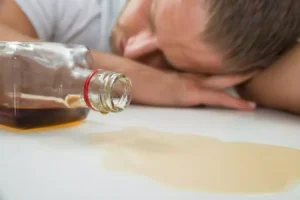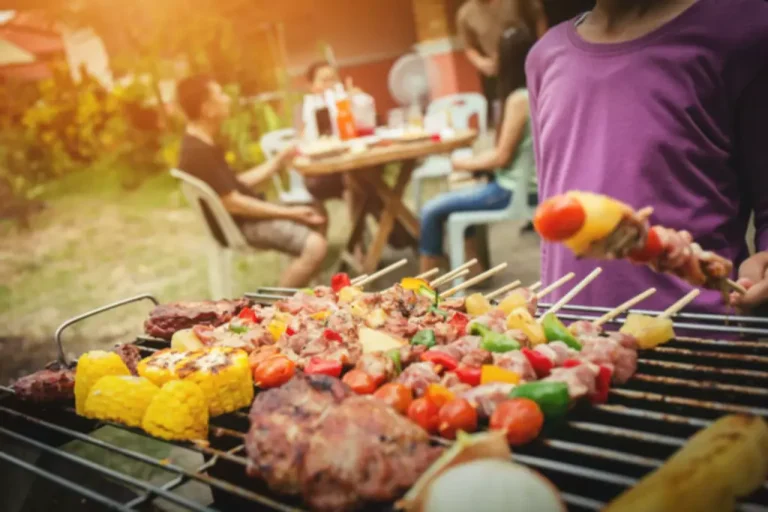
With strong ties to Victory Christian Church and the 12-step community, Federico shares an amazing personal story of redemption and long-term recovery. With over 32 years in the arena of addiction and sobriety, he uses his vast experience to provide a unique approach to mentorship and guiding our clients toward a supportive lifestyle of recovery. Mr. Douglas’ experience, strength, https://ecosoberhouse.com/ and hope inspires those in our program, and prepares them for the real-world journey of recovery.
“The first step towards change is awareness. The second step is acceptance.”
Mary goes above and beyond to exceed expectations and is dedicated to outstanding service. In her free time, she enjoys music, reading, and family time. Vanessa is certified in addictions counseling by Maryland’s Board of Professional Counselors and Therapists, with credentials as a clinical supervisor. She comes to The Freedom Center with over 14 years of direct experience in residential and outpatient treatment between the private and federal sectors. powerless over alcohol Over the past several months, Erin has worked with our team to create a strong clinical program for our residential location in Buckeystown. In addition, she has enjoyed decorating and preparing a safe, comfortable environment for clients and staff.
- What we can do is turn to a Power greater than ourselves for help.
- One thing I’ve realized about my own recovery process is that, after a bit of sobriety or what I may think is recovery, I think all is well.
- But sharing your experience and the unmanageability lifts the burden of lugging them around in secret.
- Even if you abstain for a while, as soon as you return to using alcohol or other drugs, the addiction will reawaken.
- These substances literally rewire brain function, making the need to satisfy a craving take prominence over everything else in life–regardless of the consequences.
How to Foster Self-Compassion in Sobriety
Be as honest as you can, starting with early examples and then going to the most recent. These behavioral responses can contribute to a further sense of powerlessness and need to be addressed for an individual’s recovery and empowerment. “We admitted we were powerless over alcohol” is, of course, Step One of Alcoholics Anonymous. 12-step programs have been statistically shown to have a 5-10% success rate. Step One isn’t the only reason for this, but it is clearly a part of the problem. They were personally convinced that they were unable to control the effect alcohol had on them.

Can I Overcome Addiction on My Own?

By accepting that you’re powerless over alcohol, drugs or addictive behavior, you’ve come to terms with your personal limitations. Step One AA is fundamentally about honesty, while active addiction is characterized by denial. The ways one tells themselves and everyone around them “see I’m okay” when they most likely are not.
This acceptance highlights the significant impact that drugs and alcohol have on their lives and sets the stage for seeking help 1. Our comprehensive approach to recovery, combined with long-term residential treatment and dual diagnosis capabilities, prepares clients to successfully navigate the path to sustained sobriety. Remember, acknowledging unmanageability is a critical first step toward recovery.
Prescription Drug Abuse Statistics & Facts

Explore the vital eating disorder statistics & facts, from global prevalence to recovery paths. Discover Trump’s revolutionary alcoholism approach to drugs policies, from marijuana to opioid crisis management. There is no need to consider “unmanageability” as a separate concept from “powerlessness”. They are equivalent; the step does not come in “two different halves”.
Teen & Young Adult Treatment Tracks
These workplace dynamics contribute to a negative culture of bullying and toxicity 3. For individuals struggling with addiction, this environment can exacerbate feelings of powerlessness, further hindering their recovery journey. Addressing these issues is crucial for fostering healthier workplaces and supporting those in recovery. Acceptance of powerlessness can be liberating for many individuals. By admitting their lack of control over substances, they can redirect their time and energy toward aspects of their lives that they can influence.
Questions to Ask Yourself in 1st Step AA
- When we are struggling with addiction, we can feel incredibly powerless.
- And the crucial ingredient is willingness.In an age where others are always to blame for problems, it can be difficult to recognize personal responsibility in a program of recovery.
- It makes so much sense when we look back at our behaviors—the threat of relationships ending, poor health, work-life, bad decisions, legal trouble, etc.
- In this blog, we will explore Step One in AA and NA, emphasizing its significance and how it serves as a powerful catalyst for change and recovery.
- “We admitted we were powerless over alcohol” is, of course, Step One of Alcoholics Anonymous.
- AA is a group of fellow recovering alcoholics who use the 12 steps and sponsorship to hold you accountable and offer you a daily reprieve from alcohol dependency.
When someone is struggling with addiction, they may feel like they have no control over their life. This sense of powerlessness can be a major factor in addiction. Ambrosia was founded in 2007 with a mission to provide truly individualized substance abuse treatment to every person who enters one of our programs. Understanding powerlessness in sobriety can help you manage your addiction. By relinquishing control over your addiction, you are now free to get help and support from others. After years of battling alcohol and drug addiction, Shannon found purpose in aiding and assisting the still suffering alcoholic and addict.
Breaking Down Step One
- Your simple and humble act of asking for help is effectively an admission of powerlessness and unmanageability.
- This experience allowed him to learn the inner workings of almost any aspect of a company.
- This step is not saying you are powerless over your actions, decisions, or relationships with others; only over your addiction to alcohol or drugs.
- The founding members of Alcoholics Anonymous wanted to help others suffering from severe alcoholism find the relief and freedom they had achieved.
Admitting to being powerless over alcohol will help a person to recognize that he or she does not have control over their drinking. Denying there is a problem only allows the person to continue their destructive behavior. Providing these examples of powerlessness over alcohol can help an individual to start recovery. Understanding that you have the power to make changes in your life and seeking out resources such as therapy, community support groups, or treatment centers like ours can help you take back control of your life. In addition to the title of Licensed Clinical Professional Counselor, Kevin is also licensed by the state of Maryland as a Clinical Drug and Alcohol Counselor. He holds a Master of Science degree in Counseling and has over 26 years of experience as a substance use/mental health counselor with the Montgomery County Government.

Many treatment options are available, including inpatient rehabilitation, outpatient programs, and therapy sessions. Each treatment method aims to address the underlying issues of addiction and equip individuals with the tools needed for long-term recovery. Powerlessness is a central theme in the experience of addiction. Even though it is the thing that causes most of the unmanageability, alcohol or drugs become our only relief. Usually, in this case, alcohol or addiction recovery is needed.